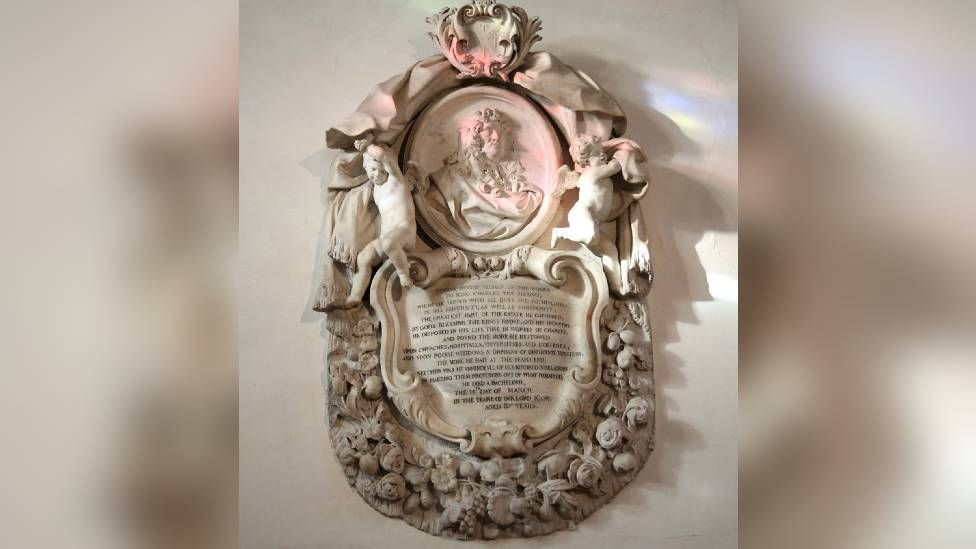An ecclesiastical court will rule whether a memorial to a 17th-century philanthropist who invested in the slave trade can be relocated at Cambridge University.
In Jesus College’s chapel, there is a memorial to Tobias Rustat, who invested in the Royal African Company.
The college has requested permission to relocate from the Diocese of Ely.
A representative for the college claimed the piece was being transferred to “a more fitting area” rather than being “cancelled or erased from the record.”
Before the twentieth century, Rustat was one of Jesus College’s most generous donors.
The college found the memorial reflected a glorification of Rustat that was “incompatible with the chapel as an inclusive community and a place of collective welfare” after recommendations from the college’s Legacy of Slavery Working Party in 2019 and 2020.
The matter will be decided before a consistory court hearing, which is an ecclesiastical court that deals with legal issues connected to the Church, particularly its structures.
Each diocese of the Church of England has its own such court.
“Part of a process of critical self-reflection on the long-term legacies of enslavement and colonial violence,” Sonita Alleyne, Master of Jesus College, said the college’s proposal to relocate the monument to an educational exhibition space was “part of a process of critical self-reflection on the long-term legacies of enslavement and colonial violence.”
A representative for the college added: “It all boils down to whether the commemorative monument to Rustat should be placed in our chapel, which serves as a place of worship and meditation for our varied community.
“The college is not requesting that Rustat’s record be erased or that his monument be transferred from a place of worship to a more appropriate – but still conspicuous – location on campus.
The memorial, he added, was “an impediment” to some members of the community attending college functions conducted in the chapel.
On February 2, the church court case is slated to begin.

